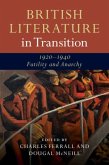THE following Poem was suggested in an excursion one afternoon to Attenburrow, a village on the banks of the Trent, about five miles south-west of Nottingham, the birthplace of the well known Republican, General Ireton.
If, in the contemplation of the character of that illustrious man, and in the indulgence of feelings excited by a consideration of the great struggle in which he bore so distinguished a part, the author has been led, in the progress of this poem, to animadvert strongly on the state of society as existing in some countries; or to avow sentiments peculiarly favourable to forms of popular government, as opposed to absolute monarchy;—he assures the reader it is not with any wish or intention to weaken the bonds which hold society together, or to excite to discontent or insubordination those classes of the community dependent on labour for their support. His object has been to shew mankind, that their vices and follies are the real cause of their degradation;—that good morals, springing from right principles, form the only sure foundation of civil liberty; and that the men who would found an improvement of the social system, on any other basis than that of an improved moral and intellectual condition of the people, can only enter on a course of fearfully hazardous experiments: rationally hoping for nothing but to reap from the crimes of others, a harvest of contempt and execration as their own portion.
If, in the contemplation of the character of that illustrious man, and in the indulgence of feelings excited by a consideration of the great struggle in which he bore so distinguished a part, the author has been led, in the progress of this poem, to animadvert strongly on the state of society as existing in some countries; or to avow sentiments peculiarly favourable to forms of popular government, as opposed to absolute monarchy;—he assures the reader it is not with any wish or intention to weaken the bonds which hold society together, or to excite to discontent or insubordination those classes of the community dependent on labour for their support. His object has been to shew mankind, that their vices and follies are the real cause of their degradation;—that good morals, springing from right principles, form the only sure foundation of civil liberty; and that the men who would found an improvement of the social system, on any other basis than that of an improved moral and intellectual condition of the people, can only enter on a course of fearfully hazardous experiments: rationally hoping for nothing but to reap from the crimes of others, a harvest of contempt and execration as their own portion.









